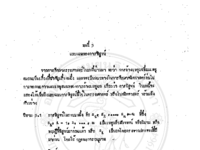Introduction to Proof
Axioms, Conjectures and Theorems
Mathematical Statements ( https://www.toppr.com/guides/maths/introduction-to-euclids-geometry/axioms-conjectures-and-theorems/ )
In Mathematics, a statement is a sentence that has a truth value (true or false).
Axiom
Derived from the Greek word ‘Axioma’ meaning ‘true without needing a proof’, a mathematical statement assumed to be true without a proof.
 Theorem
A mathematical statement that after a series of Conjectures(proof) we then know it is true.
So if a statement is always true without needed proof, it's called an axiom. If it needs a proof, it is called a conjecture. For a statement proven by a series of axioms, it is called a theorem.
Theorem
A mathematical statement that after a series of Conjectures(proof) we then know it is true.
So if a statement is always true without needed proof, it's called an axiom. If it needs a proof, it is called a conjecture. For a statement proven by a series of axioms, it is called a theorem.
 Theorem
A mathematical statement that after a series of Conjectures(proof) we then know it is true.
So if a statement is always true without needed proof, it's called an axiom. If it needs a proof, it is called a conjecture. For a statement proven by a series of axioms, it is called a theorem.
Theorem
A mathematical statement that after a series of Conjectures(proof) we then know it is true.
So if a statement is always true without needed proof, it's called an axiom. If it needs a proof, it is called a conjecture. For a statement proven by a series of axioms, it is called a theorem.
Which one is not an Axiom?
1 Reflexive Axiom: A number is equal to itelf. (e.g a = a). 2 Symmetric Axiom: Numbers are symmetric around the equals sign. If a = b then b = a. 3 Transitive Axiom: If a = b and b = c then a = c. 4 Additive Axiom: If a = b and c = d then a + c = b + d. 5 Multiplicative Axiom: If a=b and c = d then ac = bd. 6 Product Axiom; if a - b = c then ac = bc
